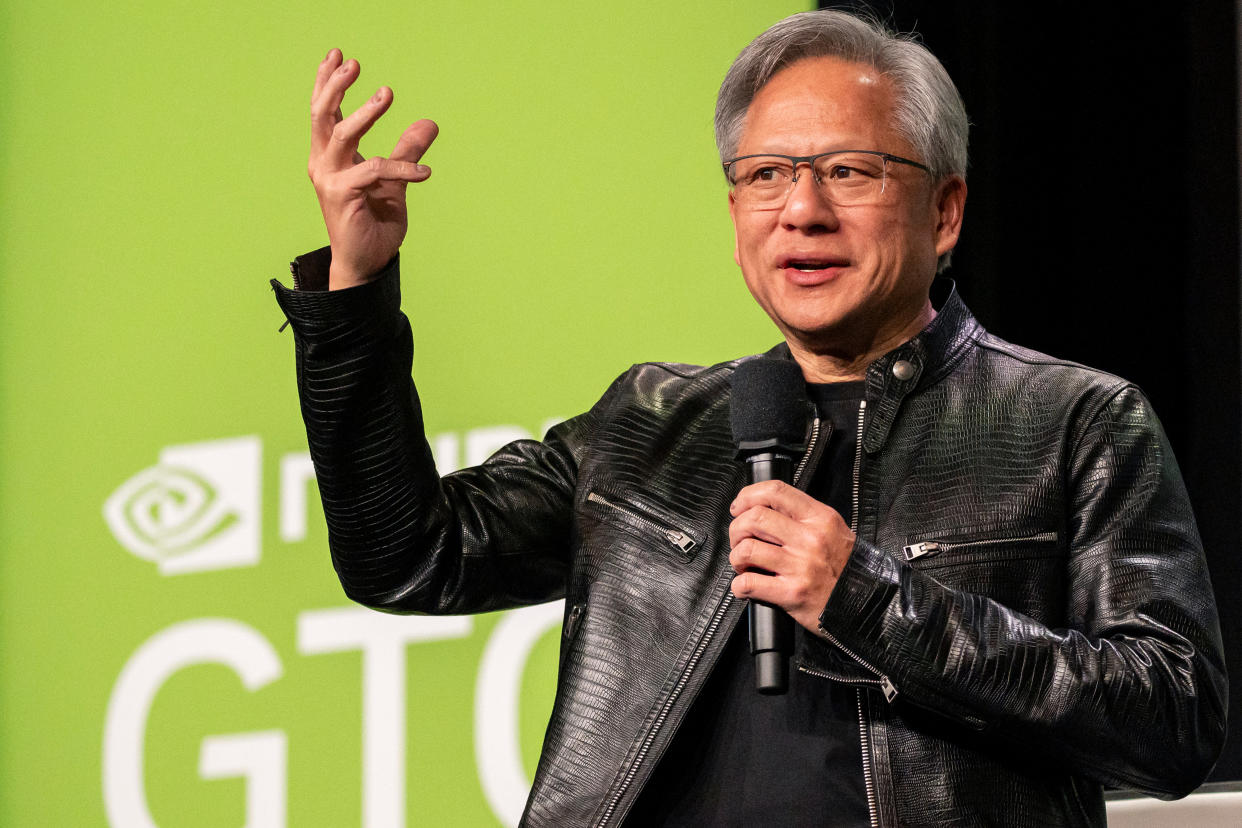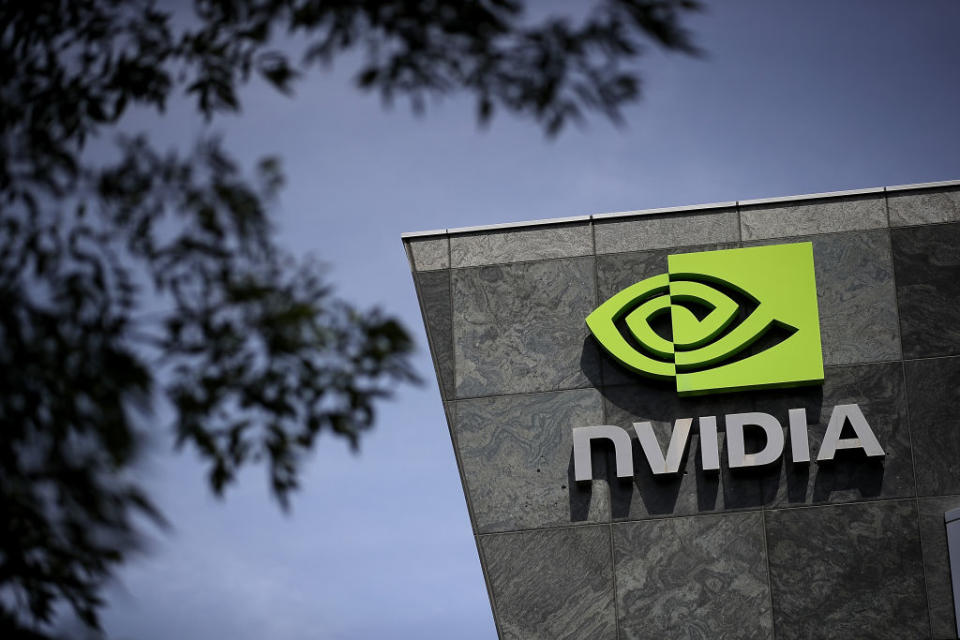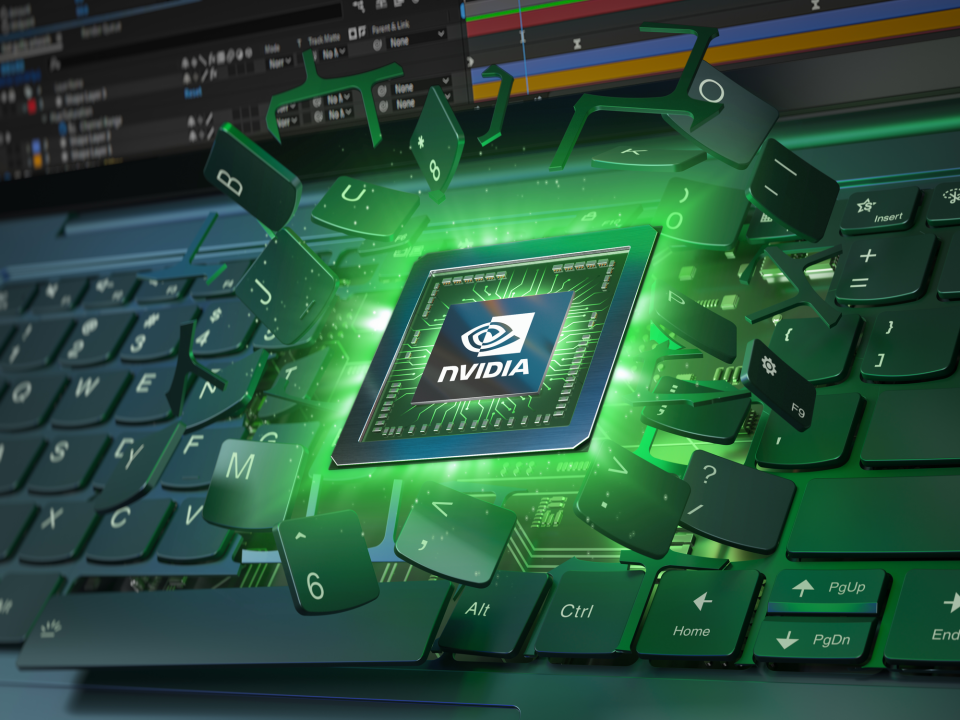What Nvidia's $700 million acquisition of Run:ai means for the future of AI

On Wednesday, California-based chipmaker Nvidia announced an agreement to acquire AI startup Run:ai, a move that hints at Nvidia's big plans for its cloud AI platform.
The acquisition is the first deal of its kind that Nvidia has made in four years, highlighting where the company's priorities may lie for the years ahead.
Here's a look at the Nvidia Run:ai acquisition and what it means for you as an everyday user, as well as its impact on businesses and even the tech industry.
Nvidia acquires startup Run:ai in $700 million deal

Nvidia announced on Wednesday that it agreed to acquire Israeli startup Run:ai in a deal valued at an estimated $700 million.
In the immediate future, Nvidia will continue selling Run:ai's products with its existing business model. Over the long term, Nvidia plans to invest in Run:ai's products under the umbrella of its Nvidia DGX Cloud AI platform.
This acquisition will primarily affect businesses that use Nvidia DGX Cloud or Run:ai to train, optimize, and run AI tools and apps. However, it could also have ripple effects that reach end users as large language model-based AI performance improves.
The deal could also raise questions about how much bigger Nvidia can get before regulations become a major roadblock to future acquisitions. In terms of market cap, it is already one of the world's top-three tech companies, with NASDAQ estimating its market cap at $1.9 trillion on Wednesday.
Nvidia is also uniquely positioned to benefit from the AI boom due to its dominance in the GPU market. In fact, analysts are already speculating about whether or not Nvidia has an AI monopoly. Acquiring another AI company certainly doesn't help Nvidia's case, so another similar acquisition could catch the attention of anti-trust regulators.
How Run:ai fits into Nvidia's DGX Cloud AI platform
If you're wondering why a tech giant like Nvidia took an interest in a startup like Run:ai, the answer is Nvidia DGX Cloud. Over the last 18 months, AI has quickly become Nvidia's top priority despite its GPUs being its most well-known product.
Nvidia DGX Cloud is designed to be a one-stop shop for training and operating generative AI. Nvidia describes it as "instant access to [an] AI supercomputer from a browser."
You could use it to train a generative AI model on a laptop without relying exclusively on the laptop's hardware.
Instead, DGX Cloud gives you remote access to computing resources, like a few GPUs, through the cloud. Tools like this are handy for businesses that want to quickly build new AI apps and services.
By bringing Run:ai's products and expertise into the fold, Nvidia can expand its AI offerings further. It's noteworthy that Run:ai specializes in optimizing and managing dispersed AI computing resources. Rather than building something in-house, Nvidia can now utilize Run:ai's existing expertise.
While there's no way to know exactly how things will work behind the scenes in the next few months, this acquisition should improve performance for Nvidia DGX Cloud customers and, by extension, the people who use the AI apps and services those businesses build.
This is Nvidia's first acquisition since 2020

One factor that makes the Nvidia Run:ai acquisition so interesting is that it is the first significant deal Nvidia has made since it acquired Mellanox Technologies in 2020. That acquisition was much larger, too, valued at $7 billion. Mellanox Technologies was also an Israeli company, although it specialized in networking technologies rather than AI.
The last four years have seen an explosion in investment and interest in generative AI, so it isn't particularly surprising that Nvidia seems to have shifted its focus. Nvidia has also been pouring resources and development into its DGX Cloud AI platform since it launched a little over a year ago, in March 2023.
Over the last 18 months, Nvidia stock has soared from around $120 a share in October 2022 to around $800 a share this week.
This deal is clearly the next step in Nvidia's expanding AI strategy. It will be interesting to see whether Nvidia continues to pursue agreements with more AI startups as they compete for dominance in the AI market.
Small acquisition, big impact
So, what does the Nvidia Run:ai acquisition mean for everyday users and businesses? It will have the biggest impact on businesses that are using the Nvidia DGX Cloud platform to develop and train AI apps, tools, and services. That means most of us may not notice a direct impact from this acquisition, but we may see improved performance and faster processing times from AI apps developed using Nvidia's platform.
On a big picture scale, this acquisition also poses interesting questions about Nvidia's future and their position in the tech market. Nvidia currently has the third-highest market cap in the tech industry, outranked only by Apple and Microsoft. Both companies, particularly Microsoft, have been stepping up their game in the AI market. So, Nvidia is clearly trying to stay competitive, particularly with business users.
However, the bigger Nvidia gets, the harder it will be for it to get more acquisitions approved without running into regulatory issues. Could this be why the chipmaker giant hasn't made any other big acquisitions since 2020? It's possible. It might also be why the Run:ai acquisition is so much smaller than the Mellanox Technologies acquisition.
We'll have to wait and see how things play out for Nvidia over the next few years, but hopefully they we'll start seeing all the AI expertise they're developing trickle down to new developments in GPU tech.

